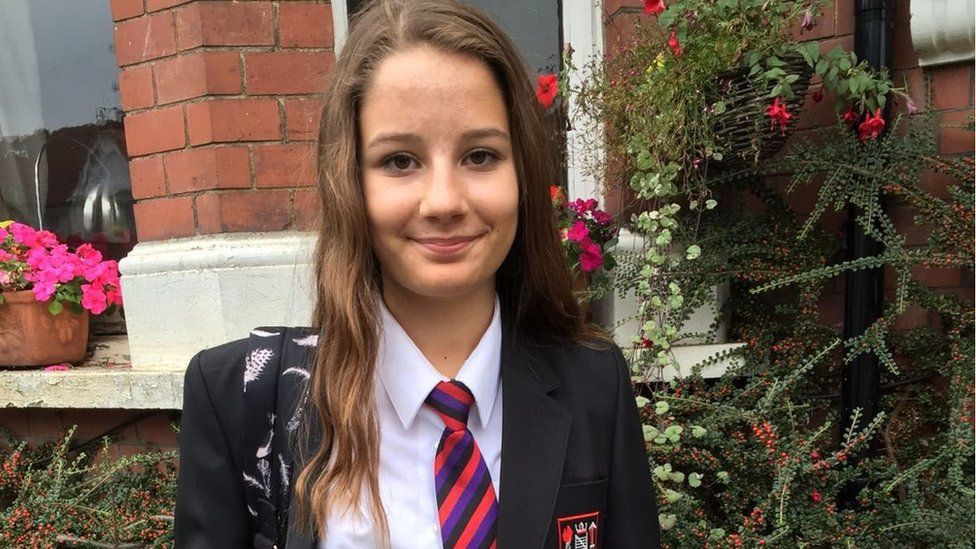ARTICLE AD BOX
By Angus Crawford
BBC News
 Image source, Russell family
Image source, Russell family
Molly saw large amounts of material around self-harm, suicide and depression on social media
Almost five years after she took her own life, the inquest into the death of teenager Molly Russell is due to begin.
Molly, 14, killed herself in 2017 after viewing material about self-harm, suicide and depression, on social media sites such as Instagram and Pinterest.
Her father Ian, a campaigner for online safety, hopes it is a turning point.
"I hope that we will learn lessons and that it will help produce the change that's needed to keep people safe, to keep people alive," he told BBC News.
Mr Russell believes long-term exposure to harmful material contributed to Molly's death.
Molly's story provided fresh impetus for new legislation to regulate so-called big tech companies. The Online Safety Bill is still making its way through Parliament and is due a third reading in the Commons.
Meta, which owns Instagram, and Pinterest are officially taking part in the inquest, which is due to last two weeks. It will hear evidence from executives from both companies, after they were ordered by the coroner to appear in person.
Meta is likely to be questioned about a number of internal documents revealed by the former employee and whistleblower Frances Haugen. These include research carried out by the company into the impact of the platform on the mental health of young people.
'Pretty dreadful' content
In the last six months of her life, Molly used her Instagram account up to 120 times a day, liking more than 11,000 pieces of content. She is thought to have used the image-sharing site Pinterest more than 15,000 times over the same period.
The coroner, Andrew Walker, has already been warned that some of the content is "pretty dreadful" and difficult even for adults to look at for extended periods of time.
Ged Flynn, chief executive of Papyrus, which works to prevent suicide in young people, said Mr Russell's campaign to prevent future deaths was "a hugely significant contribution to the agenda of suicide prevention in this country".
"We have to change the way we accept the power of the tech giants," he said.
Image source, PA
Image caption,Molly used her Instagram account up to 120 times a day
Others believe that the inquest may prove to be a "watershed moment". Andy Burrows, head of child safety online policy at the NSPCC, said: "Molly's death is a tragedy that is all too relatable to all parents who worry about the risks their children face online.
"For the first time we will see big tech representatives questioned under oath about how their products may have contributed to the death of a child."
A Meta spokesperson told the BBC: "Our deepest sympathies remain with Molly's family and we will continue to assist the coroner in this inquest. We have never allowed content that promotes or glorifies suicide and self-harm."
In a statement, Pinterest told BBC News: "Combating self-harm is a priority for us as we strive to ensure that Pinterest plays a positive role in people's lives."
However, Matthew Bergman, a lawyer from the Social Media Victims Law Centre, in Seattle, in the US, says the proceedings will be closely watched in North America.
"Regardless of the outcome, the fact that Meta senior personnel have been forced to testify in a proceeding like this one is a significant step toward accountability."

 2 years ago
35
2 years ago
35








 English (US) ·
English (US) ·